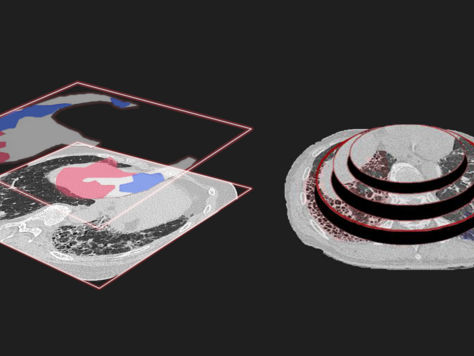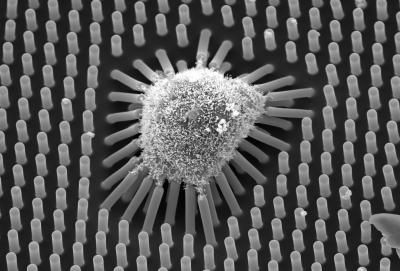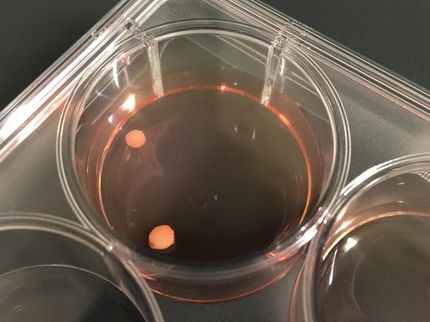Material screening method allows more precise control over stem cells
When it comes to delivering genes to living human tissue, the odds of success come down the molecule. The entire therapy — including the tools used to bring new genetic material into a cell — must have predictable effects.
Now, a new screening process will simplify non-viral transfection, providing a method researchers and clinicians use to find an optimal set of biomaterials to deliver genes to cells.
Developed by William Murphy, the Harvey D. Spangler professor of biomedical engineering at the University of Wisconsin-Madison, the method gives researchers greater control over how cells react to the gene delivery mechanism. The broader implication is more nuanced, effective control over cell behavior. "We've been exploring using this concept for reprogramming of adult cells, as well as controlling differentiation of stem cell types," Murphy says.
Murphy and his collaborators published news of their advance in Nature Scientific Reports.
In a current successful approach, researchers use specialized viruses to deliver genetic material to cells. While efficient, that method also carries a greater risk of turning on unwanted genes or provoking an immune response from the body —making it less attractive for sensitive biomedical applications like controlling stem cell behavior, says Murphy.
His team has developed a process that does not rely on viruses. Rather, the researchers can grow specific calcium phosphate coatings that serve as a medium via which genetic material can be delivered to cells more efficiently. By matching a coating to a specific application for delivering genes, Murphy has seen up to a 70-fold increase in successful expression of those genes in human stem cells.
"From an application standpoint, the advance could be really impactful, and could enable gene delivery to become an integral part of medical device design and tissue engineering applications," says Murphy.
The process could be critical to further advances in regenerative medicine. Since researchers can apply it to any size or shape of tissue engineering structure, it could help provide engineers a simpler way to build the complex tissue structures required to deliver next-generation drug screening and patient therapies.
Most read news
Organizations
Other news from the department science

Get the analytics and lab tech industry in your inbox
By submitting this form you agree that LUMITOS AG will send you the newsletter(s) selected above by email. Your data will not be passed on to third parties. Your data will be stored and processed in accordance with our data protection regulations. LUMITOS may contact you by email for the purpose of advertising or market and opinion surveys. You can revoke your consent at any time without giving reasons to LUMITOS AG, Ernst-Augustin-Str. 2, 12489 Berlin, Germany or by e-mail at revoke@lumitos.com with effect for the future. In addition, each email contains a link to unsubscribe from the corresponding newsletter.
More news from our other portals
Last viewed contents


























































